Oktober 2022, Starling Hotel, EPFL Wie verändert die Digitalisierung die Bereitstellung und unser Verständnis des Service Public? Und was bedeutet dies für dessen Zukunft? Diese Fragen werden zunehmend wichtiger, da digitale Plattformen – viele von ihnen global agierend und in privater Hand – zunehmend traditionelle, physische öffentliche Dienstleistungen vermitteln, sei es in den Bereichen Kommunikation, Medien, (…)

This installment of C4DT’s Digital Governance Book Review focuses on Bruce Schneier’s 2018 Click Here to Kill Everybody. Security and Survival in a Hyper-connected World New York; London: W.W. Norton & Company, 319 pages.
A must-read for anyone interested in the mounting cyber security challenges posed by the rapid growth of IoT-devices.

In “Click here to Kill Everybody”, computer security, privacy, and cryptography specialist Bruce Schneier argues for the pressing need for greater internet security in the wake of the unrelenting expansion of the Internet into our physical world, specifically the Internet of Things (IoT).

Call for Applications (CfA): Become a Digital Trust Policy Fellow at C4DT and write cutting-edge, technology-grounded policy papers on current technological challenges in the area of digital trust! Check out our program website for more information. Deadline is November 1, 2022.

Im Oktober 2022 veröffentlicht das Bundesamtes für Kommunikation (BAKOM) seinen Grundlagenbericht an den Bundesrat zu den wichtigsten Herausforderungen, denen sich der Service Public aufgrund der Digitalisierung gegenübersieht.
Aus diesem Anlass bringt diese eintägige C4DT-Konferenz Experten und Expertinnen aus der Verwaltung, den Service Public Unternehmen, den Regulatoren, der Wissenschaft, der Politik und der Zivilgesellschaft zusammen, um sich kritisch damit auseinanderzusetzen, wie die Digitalisierung unser Verständnis und die Bereitstellung des Service Public verändert. Zudem werden mögliche Lösungsansätze für sich abzeichnenden Herausforderungen in vier interaktiven Panels diskutiert.
Mit dieser Veranstaltung bieten wir die Möglichkeit verschiedene Blickwinkel auf dieses wichtige Thema kennenzulernen und sich mit Vertretern aus dem Service Public selbst, sowie aus Politik, Wirtschaft und der Gesellschaft auszutauschen.
C4DT provides its partners access to knowledge and expertise distributed over EPFL’s research labs in the following trust-building technologies pillars. Furthermore, its community builds on 5 application verticals to illustrate how these technologies contribute to solving the challenges of achieving trust in the digital world.

C4DT affiliated Professor James Larus, Director of the Very Large Scale Computing Laboratory has been appointed Editor-In-Chief of Communications of the ACM, widely regarded as the leading print and online publication for the computing and information technology fields.

The International Cybersecurity Forum is Europe’s leading event on digital security and trust issues. Its unique feature is to bring together the entire cybersecurity and “trusted digital” ecosystem: end customers, service providers, solution providers, consultants, law enforcement and government agencies, schools and universities…
![[FR] La Confédération s’arme face aux cyberattaques avec un office dédié à ce fléau](https://c4dt.epfl.ch/wp-content/uploads/2022/11/News_20190306_Jean-Pierre_Hubaux_RadioInterview.png)
Prof. Hubaux, C4DT Academic Director, provides insight on the confederation’s decision to create a federal office for cybersecurity.

C4DT is organizing the 7th edition of the “FICT for Decision Makers” course. The target audience is managers and executives, without any technical prerequisites. The audience will gain in-depth understanding of the digital ecosystem.
The problem Here is a common scenario we have all run into: you need to communicate some piece of secret information, say a password, to another person. Perhaps it’s on-boarding a new colleague, or to allow access for a partner. But you don’t want to compromise this secret by transmitting it over an insecure channel, (…)
![[FR] La démocratisation fulgurante de l’intelligence artificielle n’est pas sans risque](https://c4dt.epfl.ch/wp-content/uploads/2022/03/image_2022-03-28_090917.png)
Ce samedi ont commencé à l’EPFL les Applied Machine Learning Days (AMLD), cinq jours de conférences sur l’intelligence artificielle. Ses possibilités se sont démultipliées, ce qui pose aussi des problèmes.

The Rule of Law, Democracy and the Future of Europe in the Age of Artificial Intelligence in collaboration with Fondation Jean Monet pour l’Europe and EPFL.
One of the ways public blockchains are touted is that they can replace your bank account. The idea is that you don’t need a central system anymore, but can open any number of accounts, as needed. However, as there is no central place, it is sometimes difficult to know how much money you have left. (…)
Today it’s something about actual hardware, not just software. For Christmas I took a long LED-strip and hooked it up to an Arduino One to create some animations. But not having WiFi was a bit of a shame, because this meant you couldn’t control it from a smartphone. So I dug around and found this: (…)
![[FR] Et si la Suisse aidait le CICR et les ONG contre les cyberattaques?](https://c4dt.epfl.ch/wp-content/uploads/2022/01/shutterstock_1855814008_1200px.png)
Le vol de données de plus de 500 000 personnes dans les serveurs du CICR relance l’idée d’une implication technologique de la Suisse pour aider les ONG dont elle abrite le siège. Par exemple avec un cloud lancé en Suisse
In 2022, the #MITCDOIQ will bring the globally renowned Chief Data Officer & Information Quality Symposium (CDOIQ) hosted at MIT to Europe for the first time, in cooperation with the Competence Center Corporate Data Quality (University of Lausanne – UNIL) and the Swiss Data Science Center (ETH Zurich & EPFL). The CDOIQ Symposium has established itself as one of the most important data events to exchange innovative ideas, best practices and to promote the adoption of the CDO role.
En deux ans de pandémie, la Suisse a fait du bon et du moins bon. Les deux épidémiologistes Marcel Salathé et Christian Althaus tirent un premier bilan, et appellent notamment à créer une cellule de crise nationale coordonnant les différents acteurs.





![[FR] La Confédération s’arme face aux cyberattaques avec un office dédié à ce fléau](https://c4dt.epfl.ch/wp-content/uploads/2022/11/News_20190306_Jean-Pierre_Hubaux_RadioInterview.png)

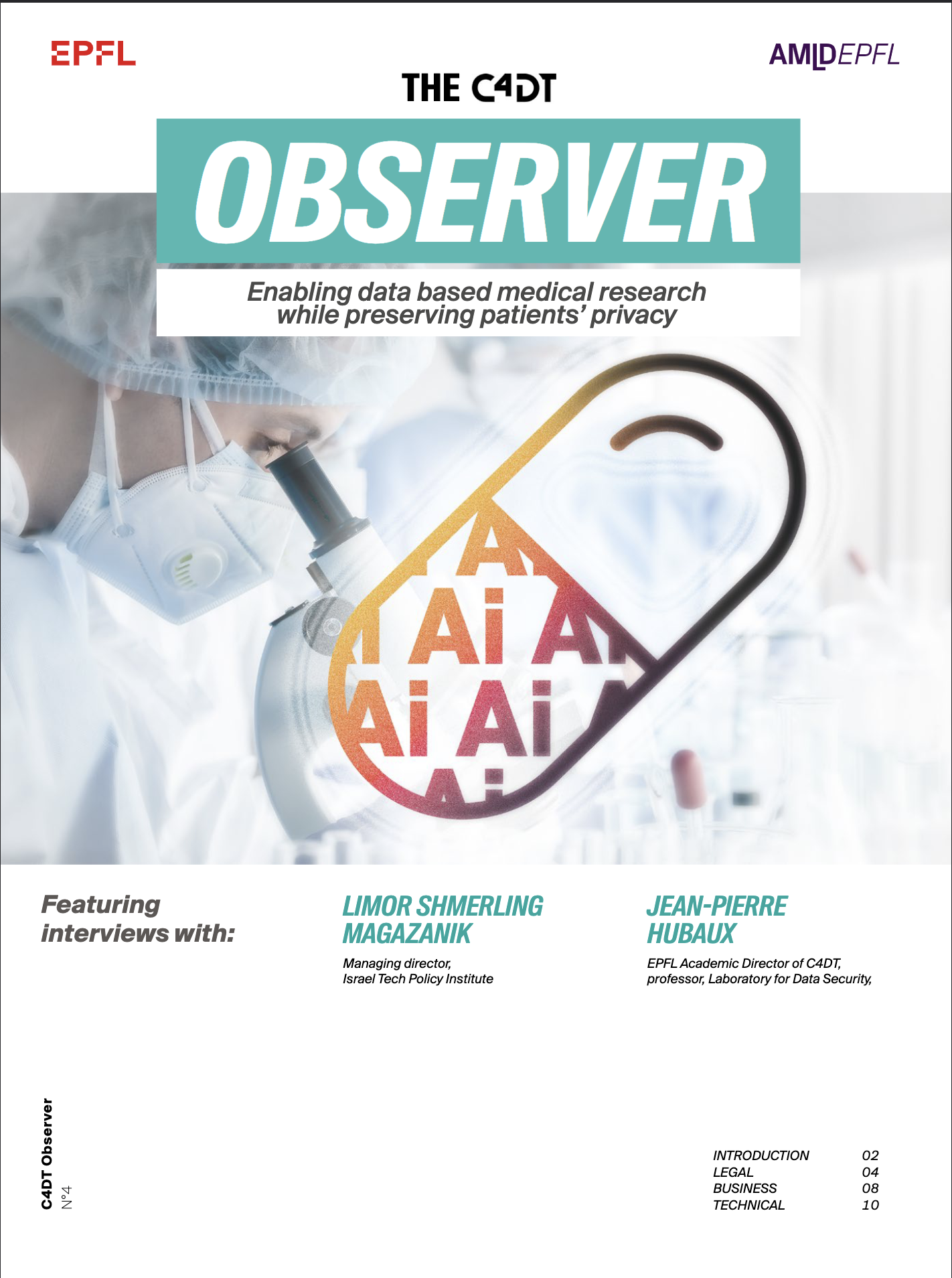
![[FR] La démocratisation fulgurante de l’intelligence artificielle n’est pas sans risque](https://c4dt.epfl.ch/wp-content/uploads/2022/03/image_2022-03-28_090917.png)

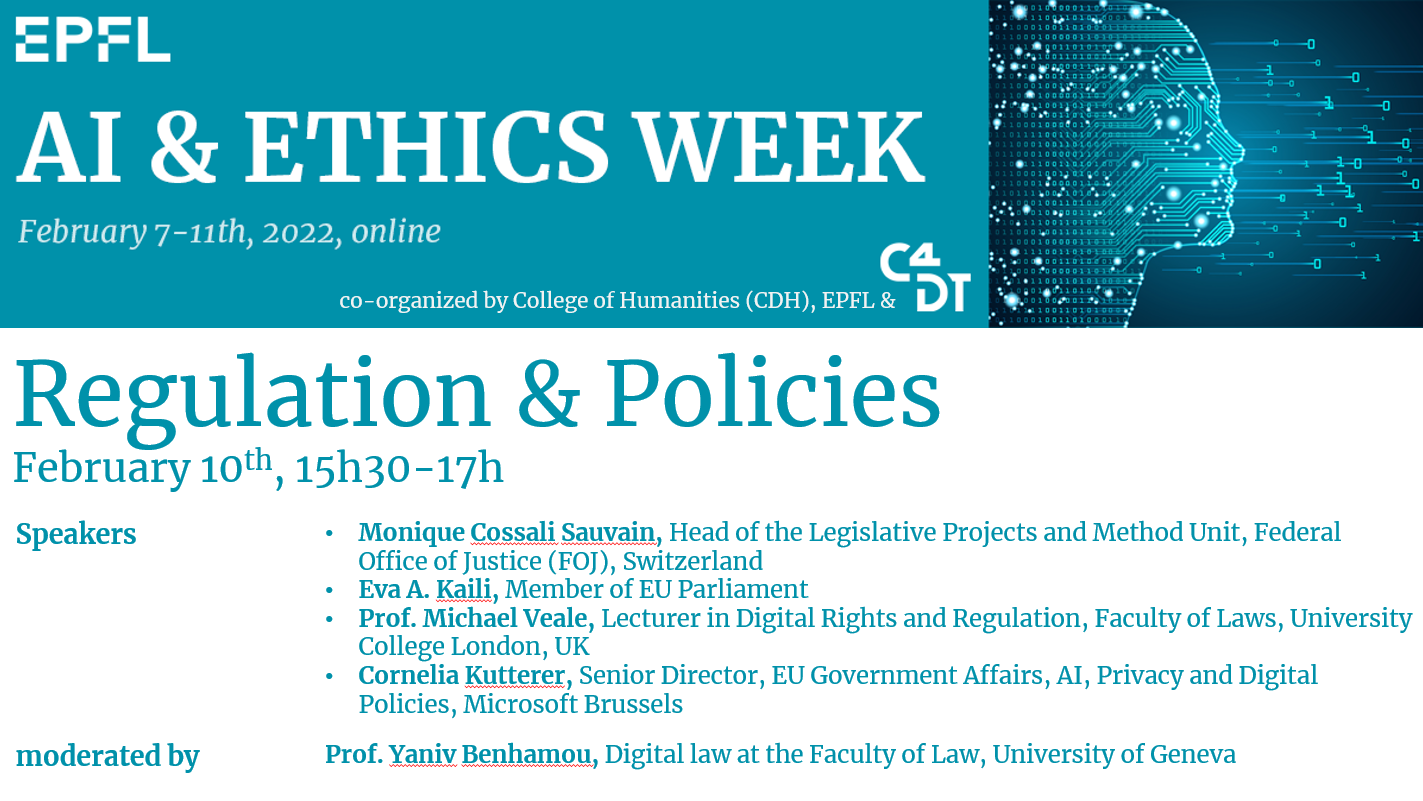
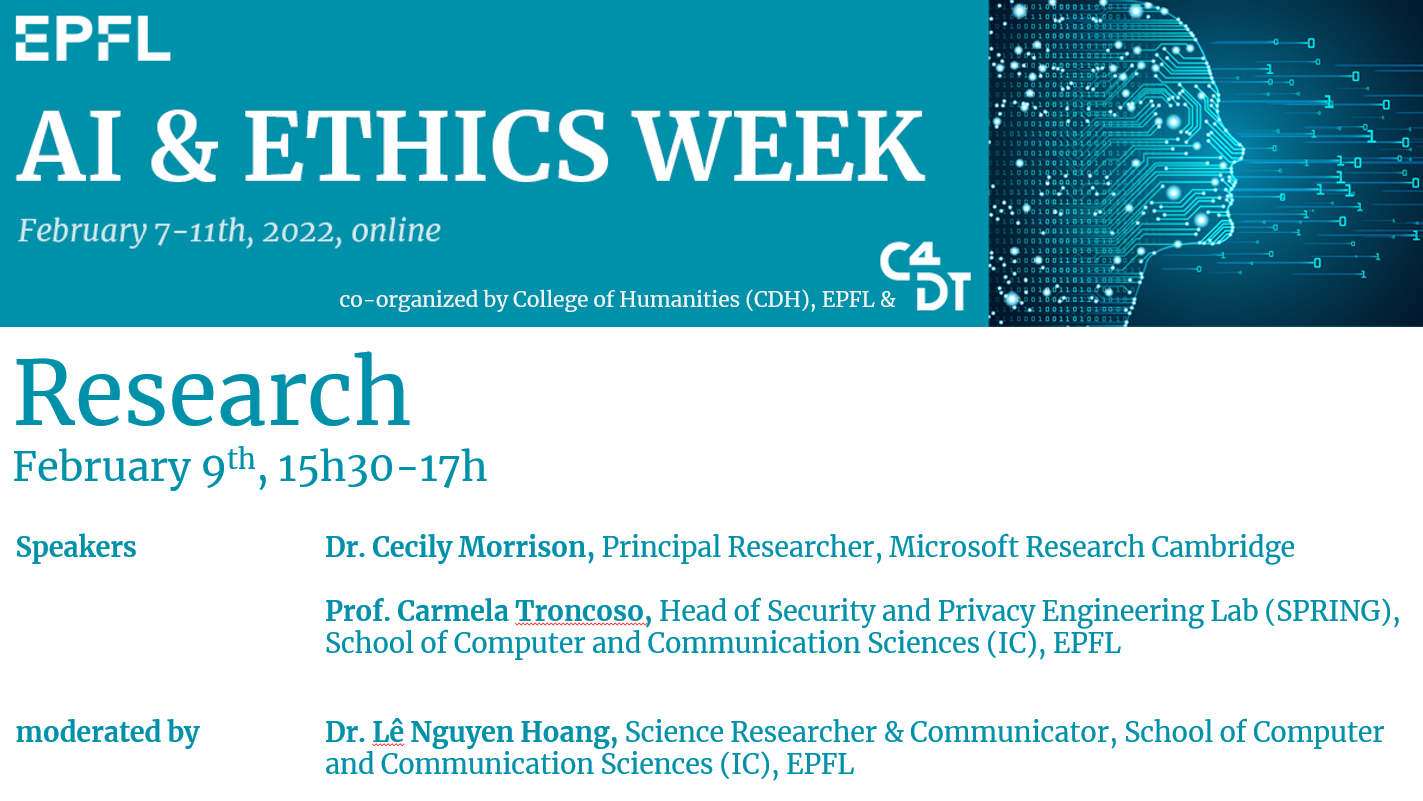
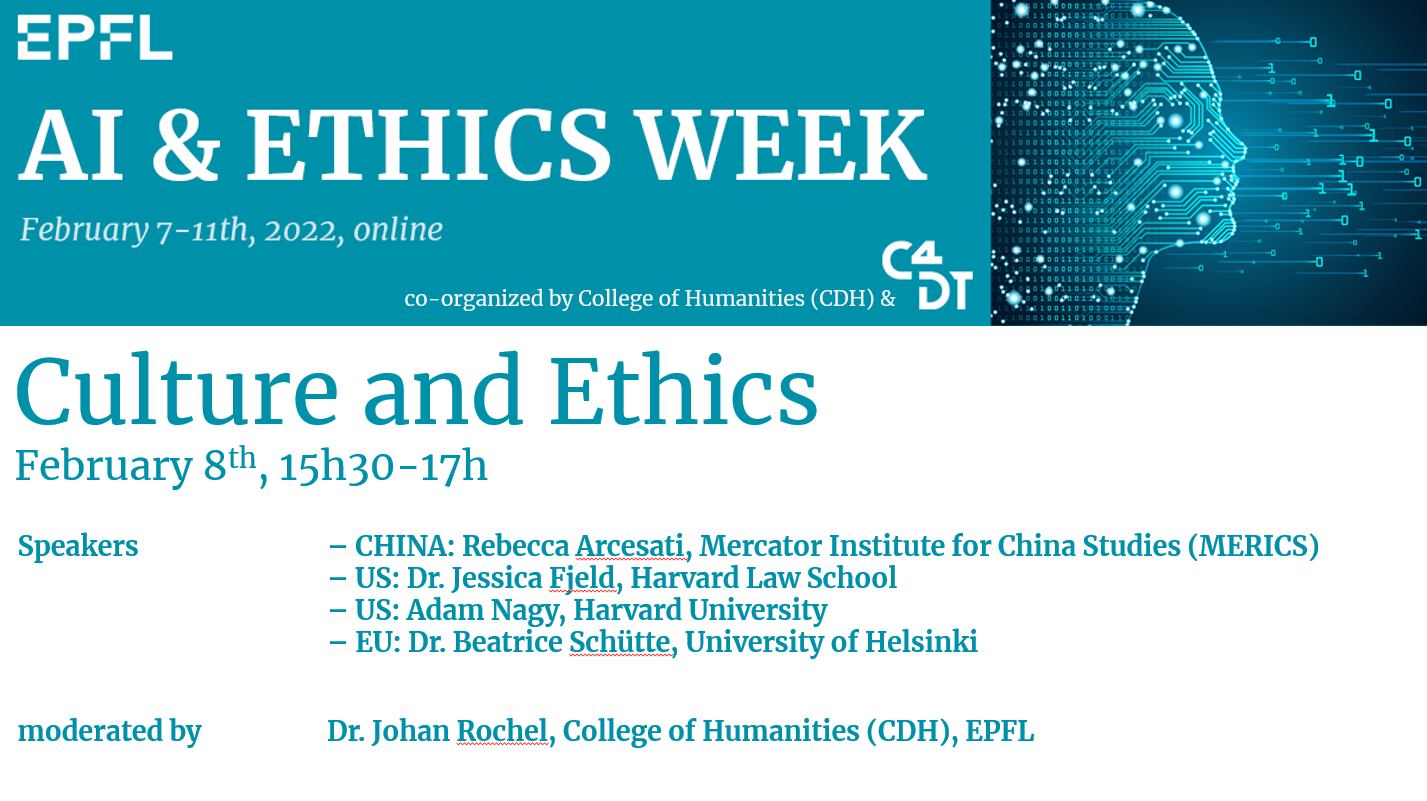
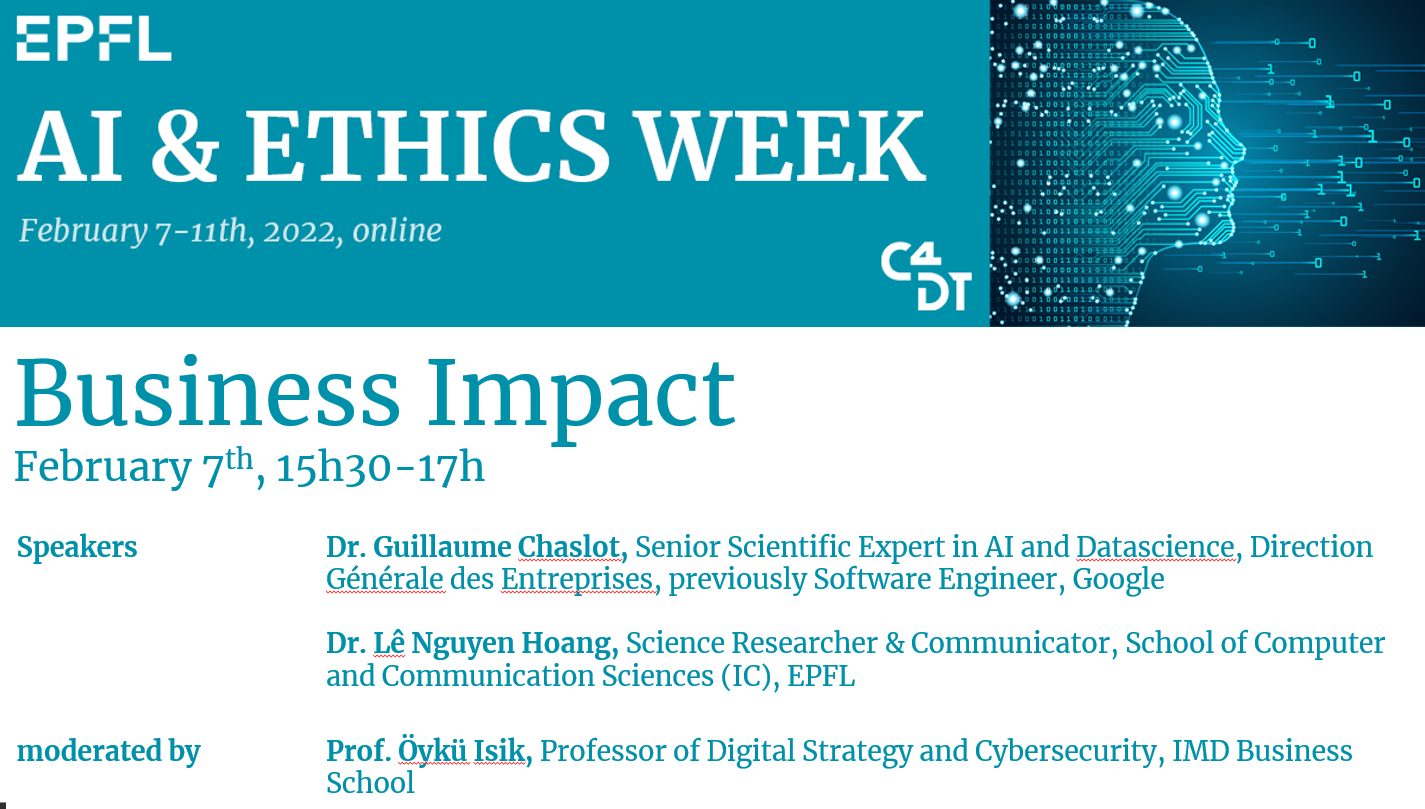
![[FR] Et si la Suisse aidait le CICR et les ONG contre les cyberattaques?](https://c4dt.epfl.ch/wp-content/uploads/2022/01/shutterstock_1855814008_1200px.png)